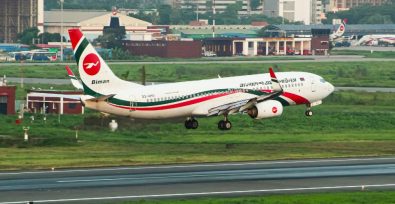Sixty Bangladeshi migrants boarded a flight to Malaysia this week through the Bangladesh Overseas Employment and Services Limited (BOESL) program. The transfer marks the first phase of an initiative to meet Malaysia’s demand for workers in the construction and tourism sectors.
But while the Government of Bangladesh presents this as a success, the UN Human Rights Office of the High Commissioner (OHCHR) warns that the workers’ long, uncertain wait points to a much deeper crisis. They are part of the 17,777 migrants who completed all required procedures last year but due to complications, were left behind. The situation underscores a system lacking proper oversight, increasing the risk of exploitation and debt bondage among migrant workers.
Debt bondage, false job promises, and more
According to UN special rapporteurs, fraudulent recruitment and exploitation remain “widespread and systematic” among Bangladeshi migrant workers in Malaysia. Thousands recruited for jobs remain stranded at home or face severe exploitation abroad after paying recruitment fees five times more than the official limits. Experts said:
Some migrants have reportedly been asked to make additional payments, while others have been reassigned to jobs without their consent. We have also been informed that a small number of recruitment agencies operate as a closed syndicate sustained by corruption, lack of transparency, and systemic exploitation,
In a recent press release, UN experts also allege that migrants experience false job promises, contract discrepancies, and pressure to sign false declarations about fees paid during the recruitment process. Additionally, they face passport confiscation by employers and publication of personal information without consent.
Malaysia’s ties to forced labor
Malaysia’s ties to forced labor have long been documented across major export industries. The country is one of the world’s largest exporters of electronics and electrical goods, a sector repeatedly linked to forced labor, debt bondage, and abusive recruitment practices.
Japanese company Shimano, located in Malaysia, has emerged as the world’s biggest bike components manufacturer. Poor migrant workers from Vietnam, Thailand, and Nepal working in the plant reportedly take out loans as high as $5,700 to pay job recruitment fees, trapping them in debt bondage.
Forced labor has also been found in Malaysia’s palm oil, rubber glove, electronics, and garment industries. In 2019, Freedom United and partners successfully campaigned for the US Customs and Border Protection (CBP) to place a ban on imports of palm oil from Malaysia after widespread evidence of worker exploitation—including forced child labor.
A system failing workers on both sides of the border
UN experts call on both governments to make migration routes transparent, accountable, and rooted in human rights. Bangladesh must strengthen oversight of recruitment agencies and ban worker-paid recruitment fees entirely. Malaysia must enforce strong labor protections and safeguard migrants from arbitrary arrest and deportation. They said:
We urge both Governments to intensify their efforts to ensure that migrant workers are not criminalised or re-victimised, and that fraudulent recruitment agencies and other responsible actors are held accountable,
They also call on both countries to conduct independent investigations into reported abuses and provide debt relief and restitution. This includes increased labor inspections in high-risk sectors and effective firewalls between labor rights enforcement/service providers and immigration enforcement authorities. Furthermore, they urge the countries to strengthen oversight by working with civil society, trade unions, human rights institutions, and UN agencies.
But the responsibility of safe migration does not stop with governments. Businesses—including multinational brands, recruitment intermediaries, and local employers—also bear responsibility. When companies profit from cheap migrant labor without ensuring ethical recruitment, they help sustain the very systems that trap workers in modern slavery.
The power of collective action
In 2018, Malaysian Minister of Human Resources proposed a policy to deduct 20% of migrant workers’ salaries to prevent them from leaving their workplaces. While framed as a “win-win” allowing workers to collect the funds after their work permits expired, the proposal ignored the root causes of why workers flee, including exploitative conditions, withheld wages, and debt from recruitment fees.
But Freedom United, together with Malaysian NGO Tenaganita, mobilized quickly, handing in 18,194 petition signatures to the Ministry of Human Resources. The UN Special Rapporteur on Extreme Poverty and Human Rights also released a statement highlighting systemic abuses against migrant workers. Following these efforts, proposal was never implemented.
Freedom United stands with the UN OHCHR, migrant workers and survivors calling for urgent reforms. Sign the petition calling on the public and private sectors to stop exploitative practices that fuel human trafficking and forced labor.







Freedom United is interested in hearing from our community and welcomes relevant, informed comments, advice, and insights that advance the conversation around our campaigns and advocacy. We value inclusivity and respect within our community. To be approved, your comments should be civil.